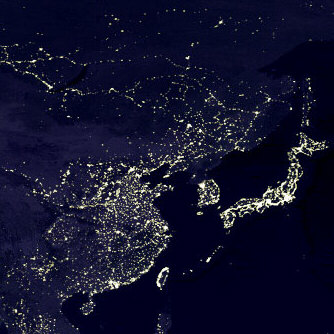|
Stardate
20021216.1522 (Captain's log): North Korea is an example of a foreign policy problem for which there's no good solution. It's radically different from Iraq, and where I think the only acceptable solution to Iraq is military intervention, I think the only real solution for North Korea is encapsulation. It's a demonstration of the way in which the devil is in the details, and how foreign policy must be based on a detailed understanding of the local situation.
In Iraq we're dealing with what amounts to malevolence. Its leadership has certain grandiose ambitions, but based on that their behavior has been reasonably rational as a way of trying to achieve those goals. It happens to be the case that their ambition is profoundly counter to our best interests, and every way short of war which has been attempted to try to make them give up those ambitions has failed, which is part of why I think we'll have to invade. (I have discussed this many times and won't go over it again here.)
The North Korean situation is entirely different. The leadership there seems to be collectively insane; their reaction to things is difficult to predict, and sometimes even difficult to understand after the fact. It's hard to deal on any level with someone which is a raving lunatic. Except for the obvious ambition of remaining in power, it's difficult to understand just exactly what the leaders of North Korea actually want. (Remaining in power may well be the only guiding principle behind their policies.)
The good news about North Korea is that it only borders two other nations. South Korea is more populous, vastly more successful and wealthy, and probably has a better and more powerful military than North Korea. China, on the other hand, is the only great power which maintains even somewhat friendly relations with North Korea, and though it has not been threatened militarily by North Korea (that either side has admitted) it is militarily vastly more powerful than North Korea and there can be no question that it could fight off an invasion if need be. There's also a 20 km. border with Russia but it's neither militarily nor economically significant and can be ignored.
North Korea is one of two remaining Stalinist nations, the other being Cuba. They're the ashes left over from the Cold War, and the Korean DMZ is the last combat zone of the Cold War.
The diplomatic situation is somewhat complicated. Technically speaking, the Korean War never actually ended. In 1953 an armistice was signed and went into effect (more or less) but there was never actually a treaty formally ending the war. And for fifty years, there's actually been low level combat on the DMZ. It's the status quo, and it doesn't hit the news when it happens. There generally aren't many casualties, but they do happen. But the two sides exchange fire across the DMZ quite routinely. (The DMZ may well also be the most heavily mined territory on the planet.)
In a sense, the Cold War was a conflict between groups of nations embracing radically different economic and political systems, and Korea turned out to be a laboratory where the two systems were tried in tandem. North Korea fully embraced the Stalinist system of repression, socialism and centralized planning, while South Korea became capitalist and mercantile, with progressive increases over time in civil rights and embrace of the principles of democracy. In the early years, South Korea was one of the show-democracies where elections were held but the outcome was predetermined, such as exists now in Egypt. But now when elections are held in South Korea, they really do matter. South Korea is still not as much of a democracy as the US or UK, but it is far better than many nations which claim to be democratic.
It would be difficult to find any place that better demonstrates the differences between Stalinism and capitalist Democracy. A satellite night image of the region makes it graphically clear.

Japan and Taiwan are heavily lit up. China does well, and you can clearly spot the area around Hong Kong. You can see the trans-Siberian railway, which is lined with towns. South Korea blazes with light, nowhere brighter than the region around Seoul. But North Korea is virtually black, with just a small blip of light at Pyong-Yang and nothing else whatever. Even from space, the failure of North Korea is blatantly obvious.
North Korea is an economic basket case, and the primary reason is the utter incompetence of its leadership. In the first half of the 20th century, the region which is now South Korea was almost exclusively agrarian, and the region which is now North Korea was industrialized. Korea was under Japanese rule, which was brutal but at least somewhat efficient. Korea was liberated at the end of World War II because of the defeat of Japan, and shortly thereafter was partitioned as part of Cold War politics, leading to the war there and the current partition.
Now South Korea is one of the great industrial and high-tech economies on the planet, and North Korea is among the very poorest of nations. If there is ever unification, it's clear that North Korea will be swallowed by the South culturally, politically and economically, and all remnants of the failed North Korean system will vanish as rapidly as they can be dismantled. Which is part of the problem.
Unfortunately, North Korea also has one of the larger and better armed militaries on the planet, which is another part of its problem and ours. Estimated at a million men (abo
|